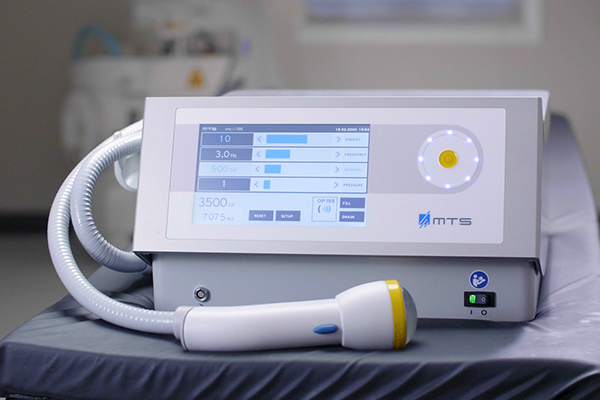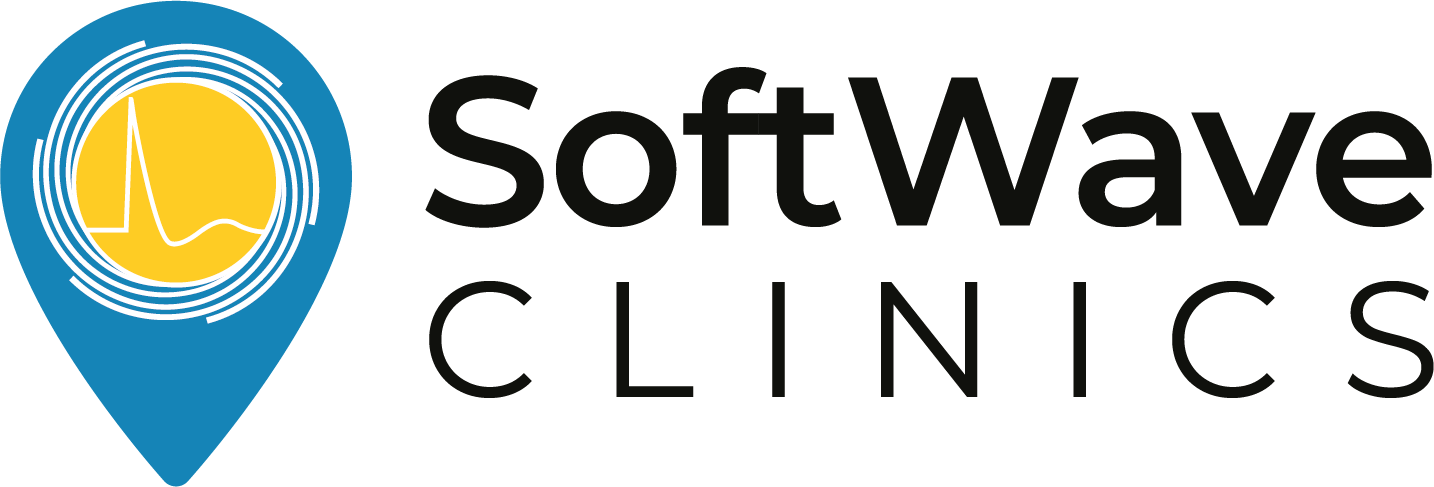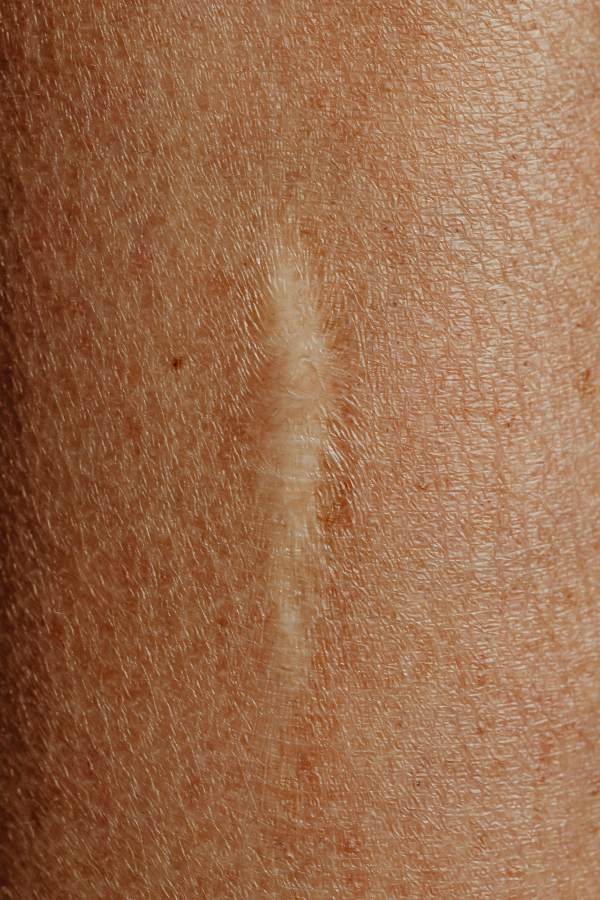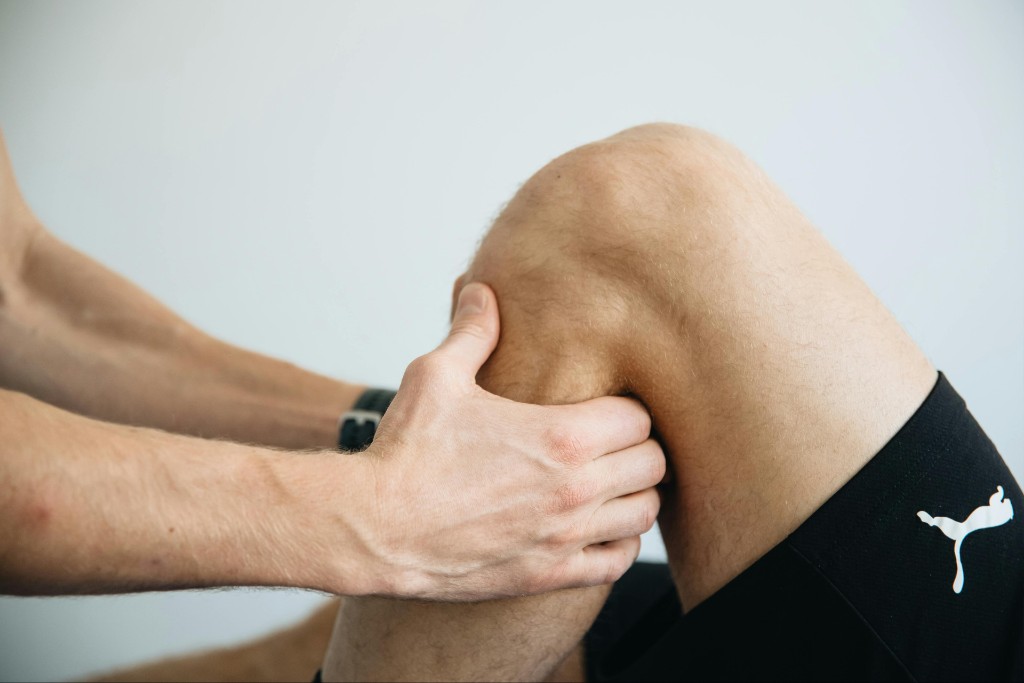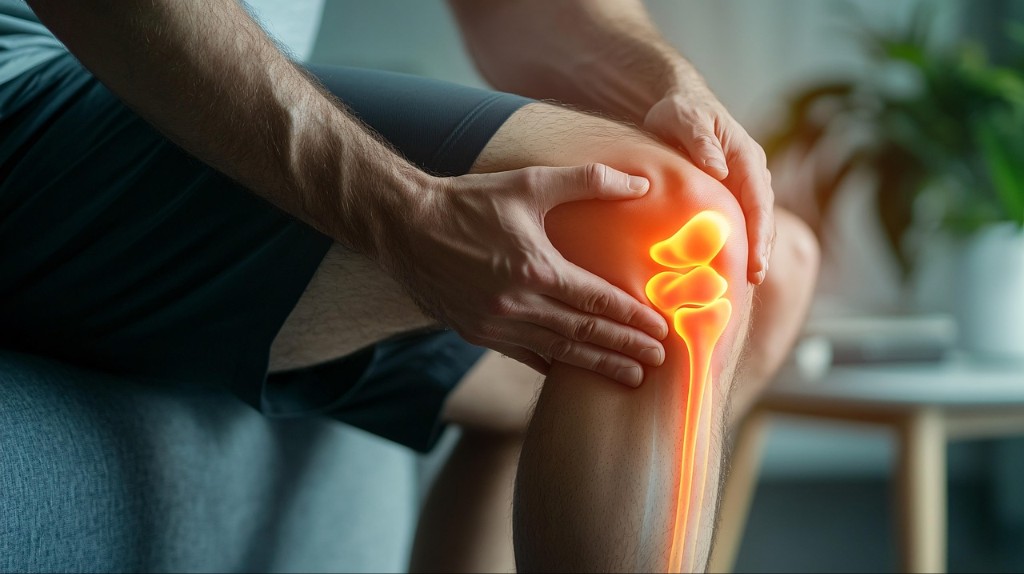Shoulder pain can make even simple movements—like reaching for an object or lifting your arms—difficult and uncomfortable. Whether caused by overuse, muscle tension, or minor injuries, it often leads to stiffness, limited mobility, and persistent aching.
If you’re looking for ways to relieve your pain, acupuncture for shoulder pain is one alternative worth considering. But does it actually work? Before making a decision, it’s important to understand what’s causing your pain and explore different treatment options to find the approach that best fits your needs and preferences.
What is Acupuncture and How Does It Work?
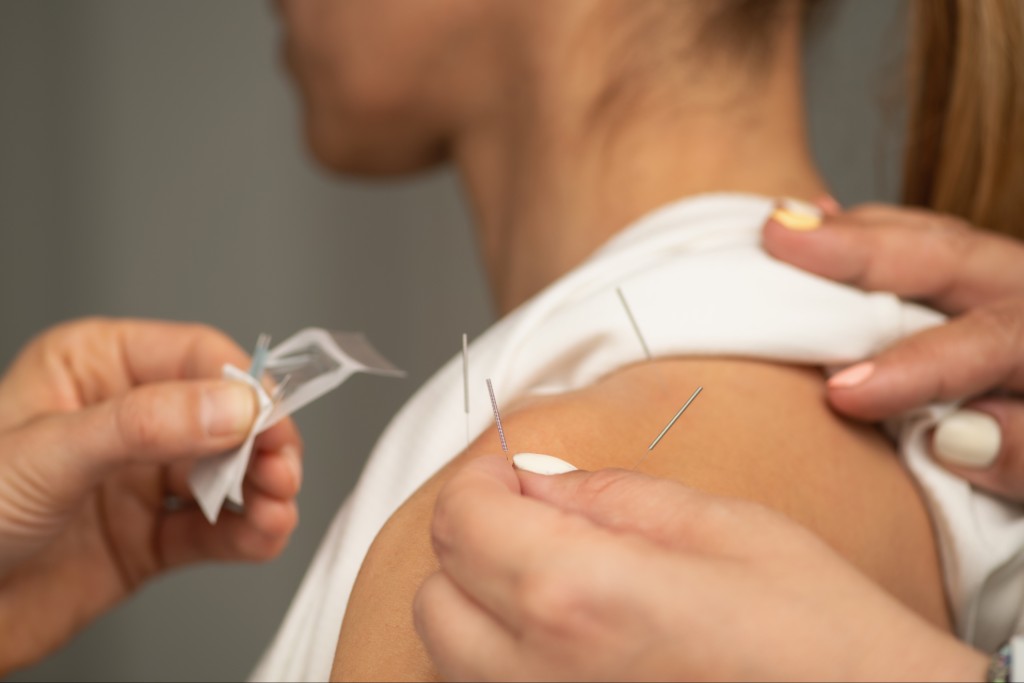
Acupuncture is a practice rooted in traditional Chinese medicine that has been used for centuries to address various health concerns. It involves inserting fine needles into specific points on the body, known as acupoints, to balance the body’s energy flow, or Qi. This process stimulates the central nervous system, releasing chemicals into the muscles, spinal cord, and brain, which may promote the body’s natural healing abilities.
In modern healthcare, acupuncture is often employed to manage musculoskeletal discomfort, including the shoulders, contributing to decreased pain. Understanding the benefits of acupuncture will help you realize if it is the type of treatment you want to try to help treat your shoulder pain.
- Pain relief.
- Reduced inflammation.
- Muscle relaxation.
- Improved range of motion.
How Does Acupuncture Address Shoulder Pain?
Acupuncture can alleviate shoulder pain through several mechanisms. Needles at specific acupoints stimulate nerves, muscles, and connective tissue, increasing blood flow and activating the body’s natural painkillers. This stimulation may reduce the perception of pain and facilitate healing processes.
Additionally, acupuncture may influence the release of neurotransmitters and hormones that modulate pain and stress, contributing to a sense of relief and relaxation. By targeting areas associated with discomfort, acupuncture aims to address both the symptoms and underlying factors contributing to shoulder pain.
What to Expect During an Acupuncture Session for Shoulder Pain
Acupuncture for shoulder pain involves a process designed to address your specific condition with care and precision. Initially, your acupuncturist will conduct a thorough assessment, discussing your health history and the nature of your shoulder pain. This conversation helps tailor the treatment to your unique needs.
During the session, you’ll be comfortably positioned, often lying down, as the practitioner inserts fine, sterile needles into specific points on your body. These needles are typically left in place for about 20 to 30 minutes, during which you may experience a sense of relaxation or mild tingling. It’s common for patients to feel at ease during this time as the body’s natural healing processes are stimulated.
While acupuncture is generally safe when performed by qualified practitioners, it’s important to be aware of potential risks. Some individuals might experience minor soreness or slight bruising at the needle sites, but these effects are usually brief. To ensure the best experience, always seek treatment from licensed and experienced acupuncturists who adhere to proper hygiene and technique standards.
Comparing Acupuncture to Other Shoulder Pain Treatments

Understanding how acupuncture works is essential when evaluating its effectiveness for shoulder pain relief. Acupuncture differs from conventional treatments, offering an alternative or complementary option for those seeking relief.
When exploring options for alleviating shoulder discomfort, it’s essential to understand the various treatments available:
Physical Therapy
- Approach: Utilizes exercises and manual techniques to enhance mobility and strengthen shoulder muscles.
- Benefits: Aims to restore function and reduce pain through targeted physical interventions.
- Considerations: It may require a longer commitment, with regular sessions over weeks or months, to achieve desired outcomes.
Medications
- Approach: Involves the use of over-the-counter or prescription drugs to manage pain and inflammation.
- Benefits: Can provide quick relief, making daily activities more manageable.
- Considerations: Potential side effects include gastrointestinal issues or dependency concerns; moreover, medications often address symptoms without resolving underlying causes.
Surgery
- Approach: Involves operative procedures to repair or rectify shoulder issues.
- Benefits: It may offer a definitive solution, especially in severe cases where other treatments are ineffective.
- Considerations: As an invasive option, surgery carries inherent risks and typically necessitates a significant recovery period.
Injections
- Approach: Administering corticosteroids or other agents directly into the shoulder joint to reduce inflammation.
- Benefits: It may offer significant pain relief, especially when other treatments are ineffective.
- Considerations: Effects can be temporary; repeated use might lead to joint or tissue damage.
Acupuncture
- Approach: A non-invasive therapy that inserts fine needles into specific points to stimulate the body’s natural healing processes.
- Benefits: Aim to reduce pain and improve function without the side effects of medications or the recovery time linked to surgery.
- Considerations: Effectiveness can vary among individuals; some studies suggest acupuncture may be as beneficial as conventional therapies for certain people.
SoftWave Therapy
- Approach: A non-invasive shockwave therapy that uses patented, FDA-cleared technology to deliver broad-focused acoustic waves. This process stimulates tissue repair, improves blood flow, and alleviates pain, making it an effective option for managing shoulder pain and promoting recovery.
- Benefits: Targets both deep and superficial tissue areas, supports natural healing, and does not require medication or surgery.
- Considerations: Multiple sessions may be needed for optimal results, depending on the condition being treated.
Why Choose SoftWave Therapy for Treating Shoulder Pain?
SoftWave therapy offers a noninvasive and effective solution for shoulder pain. This advanced treatment utilizes patented acoustic wave technology to stimulate the body’s natural healing processes, targeting the root causes of discomfort. By enhancing blood flow and modulating inflammation, SoftWave therapy promotes tissue regeneration, improving mobility and significant pain relief.
Unlike traditional or alternative methods that may rely on medications or surgical interventions, SoftWave therapy provides a safe alternative with minimal side effects and no required downtime. Its efficacy in treating various shoulder conditions, such as rotator cuff injuries, frozen shoulder, and tendinitis, has been demonstrated in clinical settings, making it a compelling choice for those seeking lasting relief from shoulder pain.
If you’re considering these treatments, consult with healthcare providers experienced in both modalities. They can assess your condition and recommend a personalized plan incorporating one or both therapies to optimize your recovery.
Can You Combine Acupuncture and Shockwave Therapy?
Yes, acupuncture and shockwave therapy can be combined as part of a multimodal approach to pain relief and healing. Acupuncture works by stimulating specific points to promote circulation, reduce muscle tension, and modulate pain signals, while shockwave therapy enhances tissue regeneration, improves blood flow, and modulates inflammation in deeper structures. Together, they may offer complementary benefits for conditions like chronic shoulder pain, tendon injuries, and musculoskeletal disorders.
However, the effectiveness of combining these treatments depends on the individual’s condition and response to therapy. Consulting a qualified healthcare provider can help determine if using both methods together aligns with your treatment goals and whether they should be performed in the same session or spaced apart for optimal results.
The Best Shockwave Therapy for Shoulder Pain
Are you looking for safe, reliable, and effective relief from shoulder pain?
SoftWave therapy is FDA-cleared, patented, and nationally recognized for its leading tissue regeneration technology. Unlike other types of high-energy shockwave treatments, SoftWave is the only shockwave therapy on the market that uses true broad-focused shock waves that treat larger and deeper areas of tissue.
Thousands of patients have experienced the benefits of SoftWave for shoulder pain, including:
- Little to no side effects
- Short treatment time
- Quick recovery
- Long-lasting results
Find a SoftWave Therapy provider near you or learn more about SoftWave and whether or not you’re eligible for full treatment today!
New Patient Special
Try SoftWave for just $69 at a clinic near you and learn if you’re a candidate for full treatment
